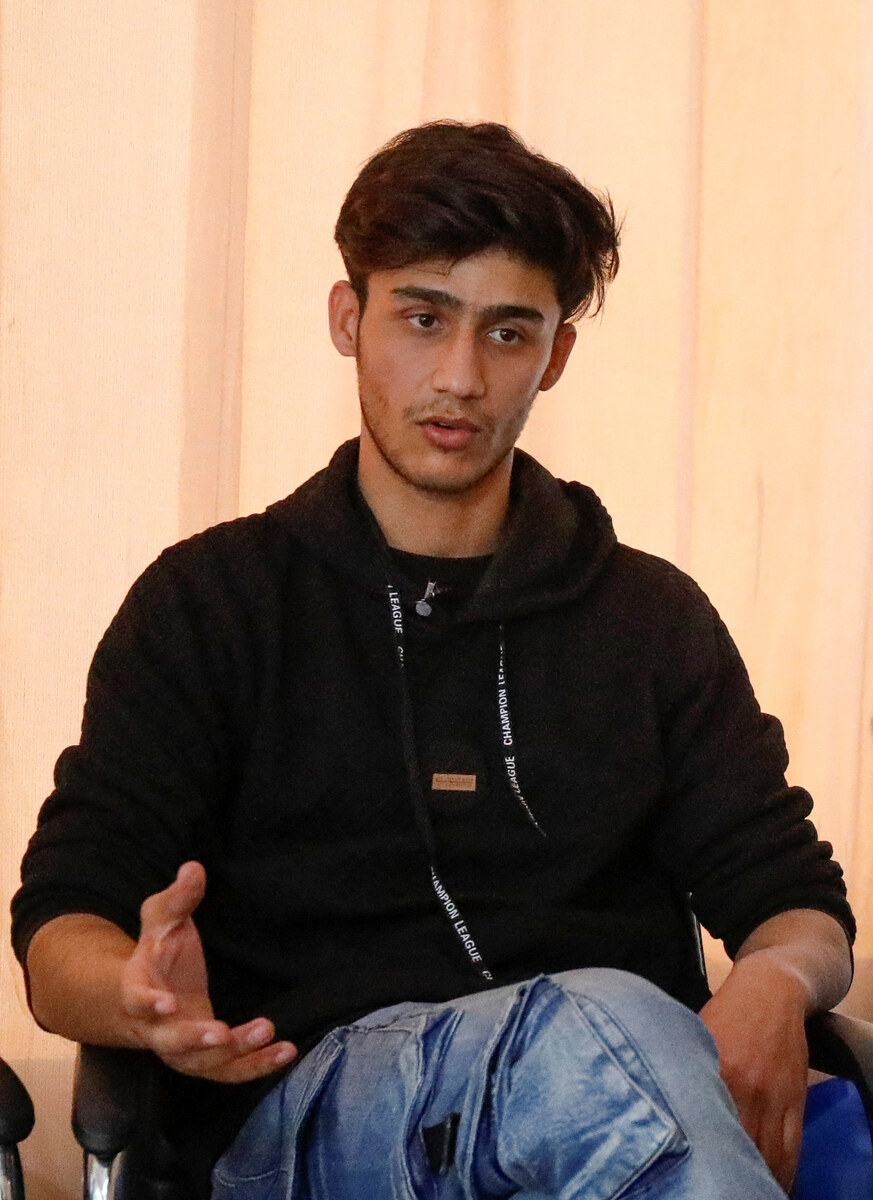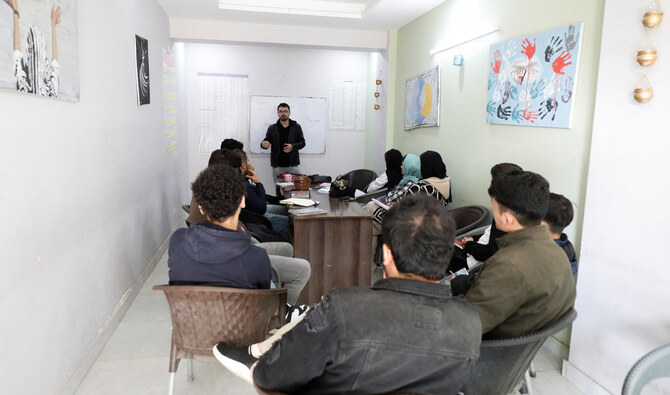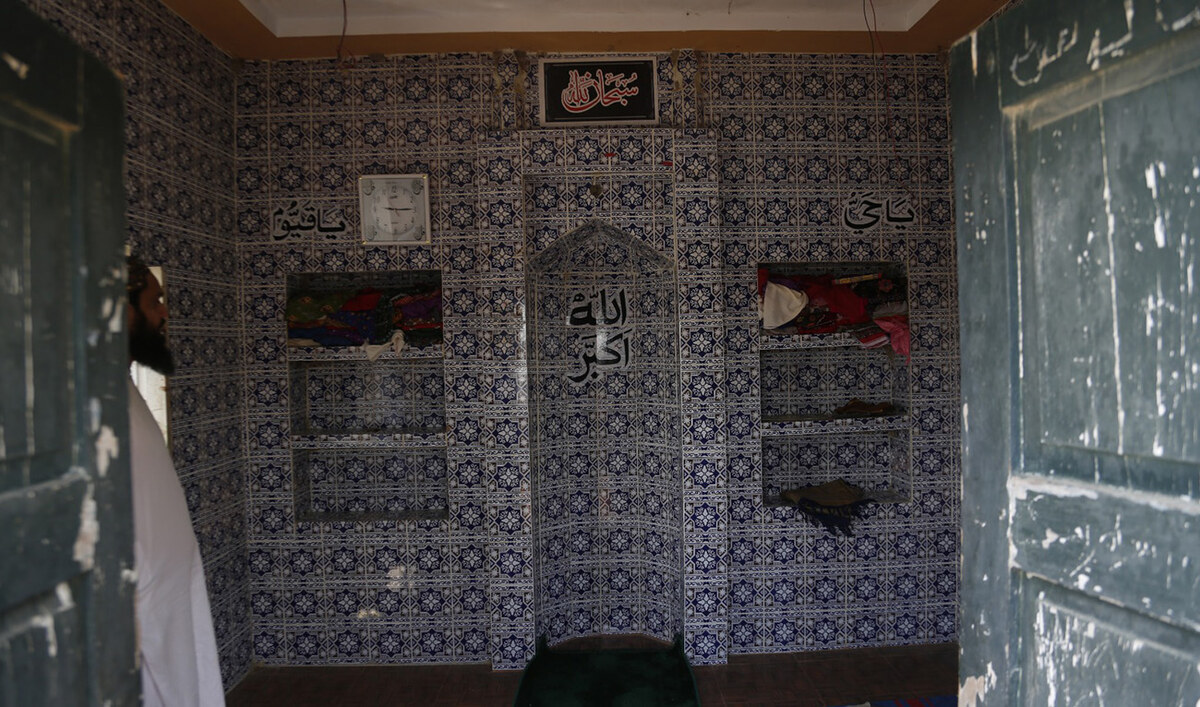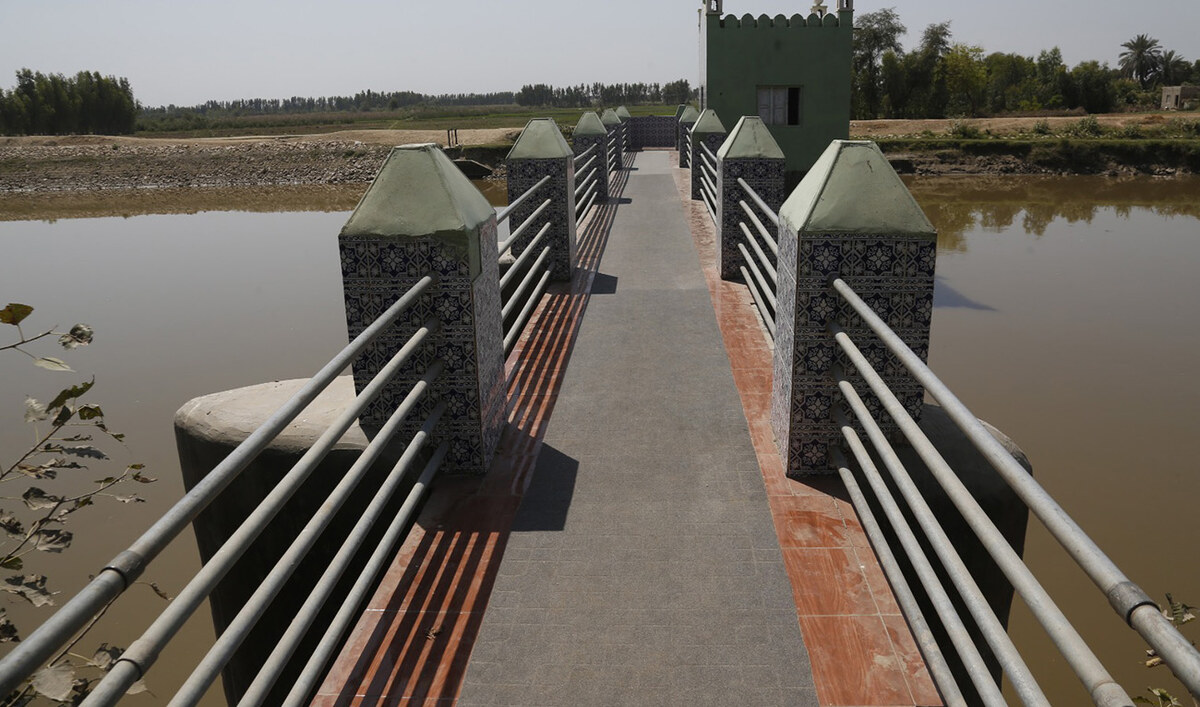ISLAMABAD: A decision by President Donald Trump’s administration to halt visa processing for refugees has caused uncertainty and shock at an English school for Afghans in Islamabad who are awaiting resettlement in the United States.
Normally enthusiastic students were quiet or crying in class after the news broke on Tuesday, said Sayed Hasseb Ullah, a 20-year-old teacher whose application for resettlement in the US is in process.
Some feel betrayed, with many — including those who fled Taliban rule in Afghanistan — having already spent years in limbo.
“It was really a horrible moment for us. We have been waiting for almost three years and there is no hope anymore,” he told Reuters at the school in Pakistan’s capital.
The sudden delay has upended the plans of many Afghans in Pakistan and left them in despair after undergoing extensive vetting and making preparations for new lives in the US

Syed Hasseb Ullah, 20-year-old Afghan citizen and a teacher, who is in the process for resettlement in the US speaks during an interview with Reuters on the outskirts of Islamabad, Pakistan on January 22, 2025. (REUTERS)
In an intermediate language class, about half of which had US visa applications in process, a 16-year-old girl broke down in tears.
“I feel very bad from this news,” she said, unable to focus on her work — practicing a list of English phrases for giving formal presentations that was written on the class whiteboard.
She hopes to enroll in high school in the US after being barred from pursuing her education at school in Afghanistan.
The tutoring academy, which has roughly 300 students, is one of the few spaces available for studying for many Afghans waiting for US visas. They cannot legally work or formally study in Pakistan.
Shawn VanDiver, the founder of #AfghanEvac, the leading coalition of resettlement and veterans groups, said there were 10,000-15,000 Afghans in Pakistan waiting for special immigration visas or resettlement in the US as refugees.
Many have waited for years after being instructed when applying to travel to a third country for processing. For many the only option was Pakistan, which borders Afghanistan but, facing economic and security crises, began deporting tens of thousands of Afghans in 2023.
A spokesperson for Pakistan’s foreign ministry did not immediately respond to request for comment on the US announcement.
FLIGHTS CANCELLED?
Nearly 1,660 Afghans cleared by the US government to resettle in the US, including family members of active-duty US military personnel, are having their flights canceled under the order suspending US refugee programs, Reuters reported on Monday.
One of Hasseb Ullah’s students, Fatima, has no idea whether an official email she received on Jan. 14 — and seen by Reuters — seeking documents to proceed with her family’s travel arrangements for the US is still valid.
The 57-year-old women’s rights and development advocate who worked for years for US-funded organizations in central Daikundi province began learning English a few months ago.
She said she had previously never imagined leaving Afghanistan and that she and many others had trusted the US — which spent two decades leading foreign forces in Afghanistan, backing the now-collapsed government and spending billions of dollars on human rights and development programs.
“You supported us at that time and raised us up so we worked with you and after that you invited us to a third country (for visa processing) and now you are doing something like this,” she said.
In addition to concerns about her own safety following her advocacy work, Fatima is particularly worried about her 15-year-old daughter. She hopes she can enroll in school in the US after years out of high school, and that her 22-year-old daughter can complete her engineering degree.
Many students and teachers said they had contacted UN agencies and the US embassy this week and were sharing any information they could find on the Internet in WhatsApp groups. But there were few clear answers.
The US embassy and State Department did not immediately provide comment in request to a question from Reuters on whether the new order would affect Afghans waiting in Pakistan for visas.
“We have been living here for three years with a hope of going to America to be safe but now when President Donald Trump came ... and told us we will not process these case or maybe we will delay it, indeed you feel betrayed,” Hasseb Ullah said.
“I just wanted to tell them respectfully that we have helped you and now we expect help back from you.”






















